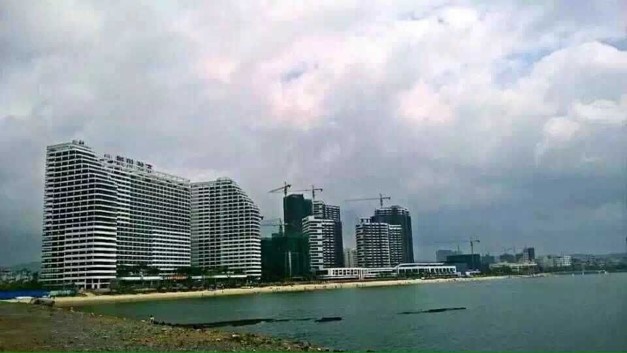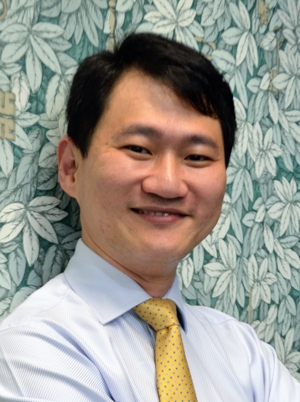|
CEDAR STRATEGIC HOLDINGS has posted 1QFY2016 revenue of Rmb 24.5 million, contributed by the Group’s maiden asset, Daya Bay, post restructuring. It acquired the holiday resort located near Shenzhen and Hong Kong in 4QFY2015. |
![]() Here are some excerpts of questions raised by the analysts who attended Cedar Strategic's 1QFY2016 results briefing and the answers provided by CEO Tan Thiam Hee and CFO Joseph Lim.
Here are some excerpts of questions raised by the analysts who attended Cedar Strategic's 1QFY2016 results briefing and the answers provided by CEO Tan Thiam Hee and CFO Joseph Lim.
|
NextInsight file photo |
Q: Who are your main shareholders?
Our shareholding structure is currently very fragmented with over 8,000 shareholders. There is no major controlling shareholder at this point.
Q: Can you pay for Daya Bay's acquisition consideration of Rmb 48 million (about S$10 million) by using the operating cash generated from pre-sales?
Pre-sales generate cash but we also need to pay off outstanding balances due to the contractors. There is not enough to pay off the Rmb 48 million consideration for 60% of the project.
Payment is due within 2 months after the legaltransfer of ownership in China is completed. As we expect the transfer to be completed over the next one to two months, we expect to make the payment during 3QFY2016. We are now looking at a placement or a rights issue to raise the money.
Based on interest expressed by shareholders, we are likely to have a rights issue. Some proceeds can be used for the next investment.
We have a cornerstone investor who has committed to taking up a minimum amount of rights shares.
Q: What is the valuation of your properties?
We have booked our investment properties of 399 units at Rmb 265 million. They generate rental income. The rest of the project is categorised as development properties, valued at Rmb 149.6 million as at 31 March 2016.
The gross development value was Rmb 650 million. After Ernst and Young in China factored in all costs, including dues to contractors, outstanding loans, contingency costs for taxes, etc, they arrived at a fair value of about Rmb 70 million for the 60% interest that we are acquiring.
The fair value that we booked is much higher than what we are paying for it. That is why we had a negative goodwill of Rmb 21 million in 2015.
Q: What is your expected schedule for sales of the property units?
1QFY2016 sales was muted because of the CNY holiday season. Momentum for property sales started picking up in late March. Barring new property curbs, I believe we can sell all of the remaining units in Daya Bay this year.
 CFO Joseph Lim
CFO Joseph Lim
NextInsight file photo
Q: Who are the typical property buyers?
They are residents from Shenzhen or Hong Kong. We also have buyers from Northern China, where it is very cold. The home buyers come to Daya Bay for holiday to escape the cold. Daya Bay is positioned as an affordable getaway holiday like Malacca for Singaporeans.
Q: What is your selling price of your property units at Daya Bay?
Our development properties are listed with a selling price of Rmb 15,000 to Rmb 16,000 psm. As sales rebates have decreased since 2015, our net selling price has in fact increased. Now, we are marketing at Rmb 16,000 psm. The average size of each unit is about 50 sqm.
Our investment properties are bulk-rented to e-Stay, which runs more than 1,000 such properties in China. We collect Rmb 2,000 per month X 399 units from this 3rd party hotel operator. As occupancy rate increases, we are allowed to revise the rental rate upwards.
Q: How has the price trend for homes in Huizhou been in the past few years?
Huizhou home prices have gone up steadily but it is not as expensive as Shenzhen. Huizhou benefits from home buyers' demand that overflows from Shenzhen.
Prices for new homes in 100 PRC cities increased by 9% year-on-year in April 2016, including the Huizhou area.
| ♦ Risk management |
|
Q: What outstanding liabilities do you have? Q: How does the macro credit risk in China affect your risk management? We can take advantage of a challenging environment to acquire assets at favorable prices. This was the case with Daya Bay. Daya Bay's vendor, Mr Luo Shandong, had lent money to the previous owners. When they had difficulty paying him back, he took over the project. That was how we managed to acquire the project below its market value. |








